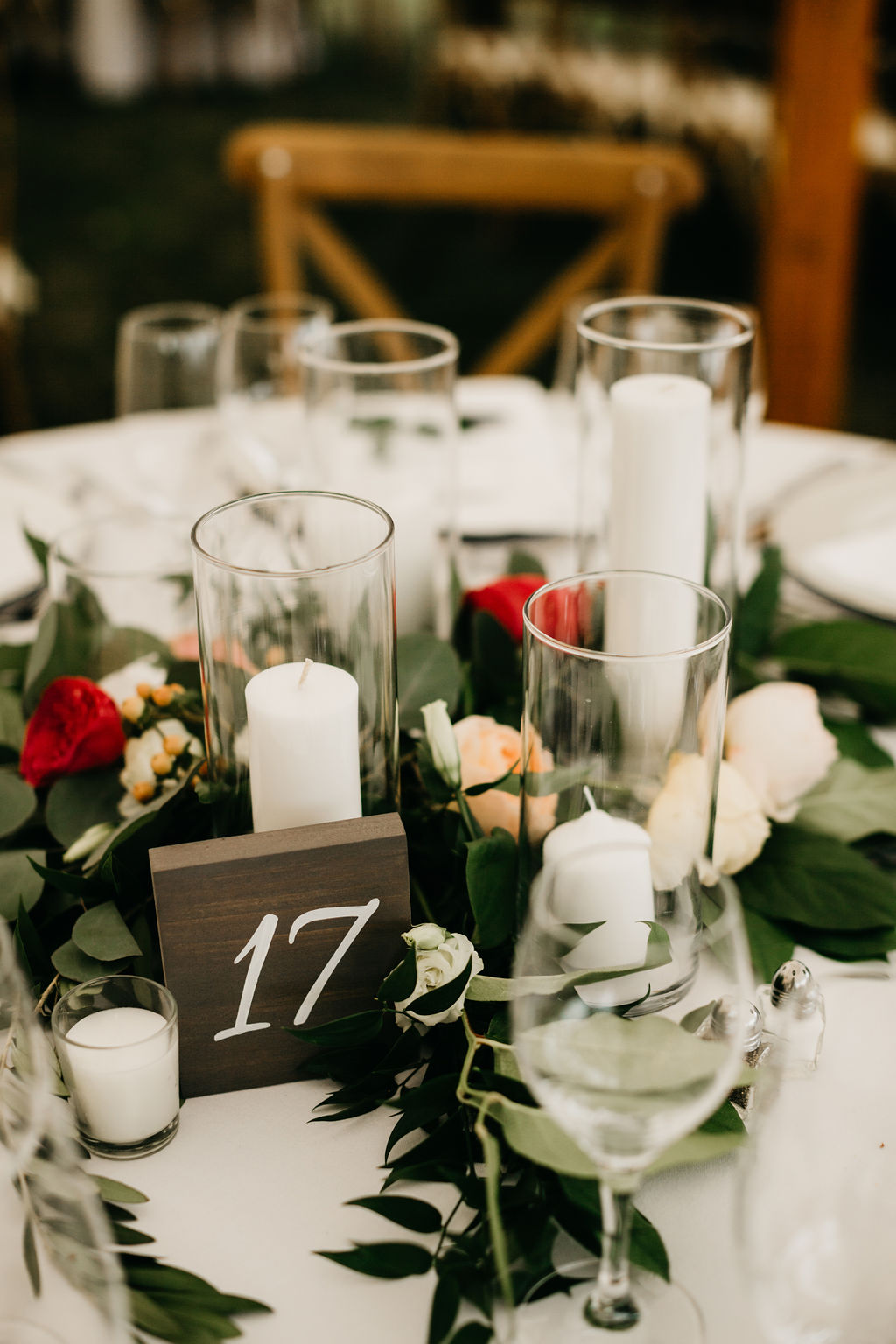
Whether you’ve always dreamed of having your wedding at your grandparent’s barn or you recently had to change your plans due to COVID-19, if you’re planning a wedding at home, you need to know these tips!
Logistical expert and lead planner for Mavinhouse Events, Lindsey Shaktman, has pulled together her top tips for couples who may be considering a wedding at home. Mavinhouse Events is a wedding planning and design firm serving modern couples throughout the NY and New England region.

As the wedding industry continues to navigate the changing landscape around the global pandemic, we’re seeing a push towards intimate, at-home celebrations. Private home weddings allow for more flexibility than a traditional venue may offer, with the spiritual connection to a space that has meaning. That said, there are some important considerations not to overlook when planning and producing a wedding at a private home.
While a traditional venue has existing infrastructure such as electricity, bathrooms, catering kitchen, etc., it’s important to remember that when planning a private home wedding you’re creating a venue from the ground up. Rather than feeling overwhelmed with all the logistical details, it’s important to lean on your event team - particularly your planner - to help you make the best decisions that align with the needs of your property and the experience you want to give guests.

1. Parking / Transportation
Homes are not designed to accommodate many cars, nevermind catering vans, tent delivery trucks or portable bathrooms. Make an action plan for where vendors can park their cars after unloading and a transportation plan for guests so they don’t need to have a car on site. Contacting the local police department is a good place to start. They will be able to help orchestrate your guests being able to park in a municipal lot such as a local public school or town hall building. A shuttle bus route from the local hotels is a convenient option for guests. You may also want to get a few golf carts for use on-site, so that older guests don’t need to walk across the property or far distances during the celebration.

2. Electricity Distribution
So you know you’ll need a generator. That’s step one. But are you distributing that power appropriately? Bands, tent lighting, and catering ovens all require electricity so it’s important to make sure you have a distribution box with your generator that will allocate electricity to each vendor. If you have everyone on the generator without the distribution box, you run the risk of surging and causing a power outage. We always recommend hiring an electrical and tenting associate for the duration of the event to be on site in case of emergency, as to not disrupt the flow of the event should an unexpected weather pattern or generator overload occur. Something you may have never thought of: allow your caterers to brew coffee off of a completely different power source, such as the main house. Industrial coffee brewers use a lot of power and can cause unforeseen problems even if you have a distribution box.

3. Rental Needs
Hosting a wedding at a private estate often means you need to build a venue from the ground up. While a traditional wedding venue or resort may have tables, chairs, and catering equipment, your home may not. You’ll need to partner with a local rental company to gather everything from the ovens to the champagne flutes. If you’re working with a planner or caterer who has previous private home wedding experience (which we highly recommend), they’ll be able to guide you through the rental process to make sure you don’t miss anything, but also that the overall aesthetic design is maintained through the individual pieces you need to rent.

4. Timelines
Like a finely orchestrated dance, set up and break-downs are essential to the overall success of your wedding. There is a regimented flow that must be adhered to during setup; from the dance floor, AV and lighting, to the tent and tables and chairs. Your band will need to be able to test out the sound system, and your catering team will need time to load in equipment and food while keeping refrigerated foods cold without letting them sit around too long. Again, having an iron-clad production schedule is key. It will come in handy for break down the day after your event as well, to ensure every vendor can pick up each piece without needing to wait for another vendor to break-down first.

5. Weather
Weather is always something that is closely watched, regardless of the location of your celebration. However, with a private home wedding you need to make sure there’s an action plan in place for inclement weather. Most tent companies will allow you to put a tent on hold for a low cost and cancel it the week of your wedding if it’s not actually needed. Closely watch the weather in the week and days leading up to your celebration to see if a tent would be needed. Make sure that throughout your planning process you’ve equally considered a good-weather plan alongside your bad-weather plan.

To watch more gorgeous wedding videos featuring Mavinhouse Events, click below.
Need help finding a videographer, venue, vendors, or ideas for your wedding? Browse our massive library of real wedding videos tagged with all of the pros who made the big day happen to find your wedding dream team. Here are a few popular categories to get you started: New York weddings, California weddings, boho weddings, rustic weddings, South-Asian weddings, etc. Still can't find what you're looking for? Email bff@lovestoriestv.com with your wedding questions or to get personalized vendor recommendations.